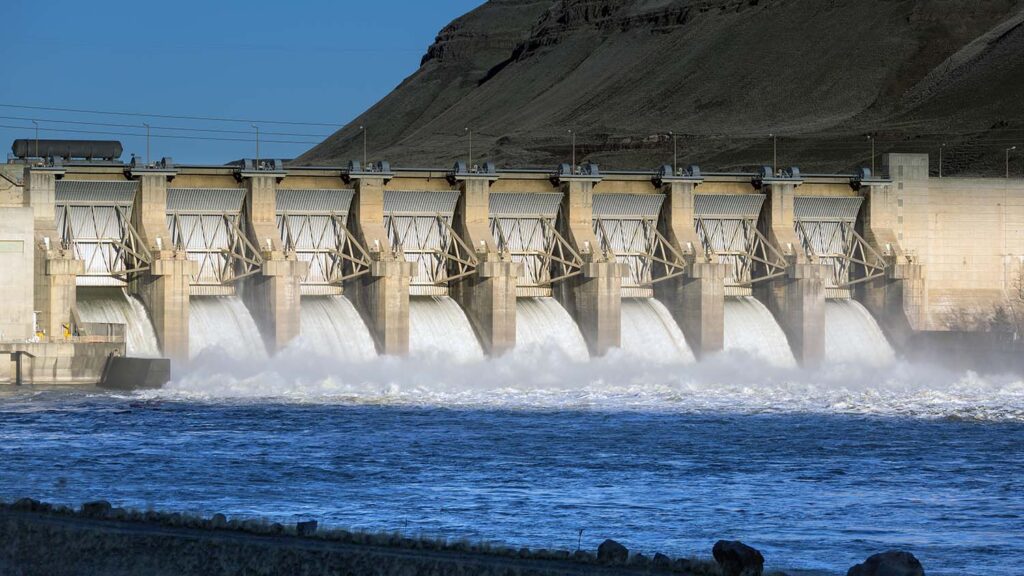
As Congress considers a sweeping water infrastructure bill, NRECA CEO Jim Matheson is urging lawmakers to protect the Lower Snake River dams that provide clean hydropower to 55 electric cooperatives in eight Western states.
Matheson, in a letter to the chairman and ranking member of the House Transportation and Infrastructure Committee, asked them to stop implementation of the Columbia Basin Restoration Initiative as they prepare to take up the biennial Water Resources Development Act.
The initiative grew out of a controversial legal settlement reached by the Biden administration, environmental groups, and tribal and state governments over the federal government’s operation of the Lower Snake River dams in southeast Washington. Those four dams supply hydropower to utilities served by the federal Bonneville Power Administration.
The settlement “poses a grave threat to the operations of the Lower Snake River Dams, will ultimately result in the breaching of the dams, and threatens electric reliability for the entire region,” Matheson wrote.
In a lawsuit filed in 2021, plaintiffs charged that the dams are threatening the survival of endangered salmon. The settlement supports breaching the dams and replacing them with other types of renewable energy.
Although it would take an act of Congress to physically breach the dams, the settlement agreement undermines their operation by mandating spill and flow requirements that weaken their economic viability, Matheson said in testimony before Congress in January.
Nationally, more than 600 electric co-ops in 34 states purchase over 10 gigawatts of hydropower at cost from the federal Power Marketing Administrations’ hydropower facilities, Matheson wrote in his May 20 letter.
“Because the [U.S. Army Corps of Engineers] is the largest generator of hydropower in the United States, NRECA members have a strong interest in ensuring that the provisions included in WRDA bolster the value of the power resource that the Corps makes available to the PMAs,” he wrote.
Matheson also asked House leaders to consider other co-op priorities, including preserving rate-making authority for the PMAs to ensure that federal power customers don’t get stuck paying a disproportionate sum for Corps infrastructure projects that are miscategorized as hydropower improvements.
“Electric cooperatives enjoy a productive partnership with the federal government and the communities we serve,” Matheson told Transportation and Infrastructure Chairman Sam Graves, R-Mo., and Rep. Rick Larsen of Washington, the panel’s senior Democrat. “We appreciate your consideration of these priorities and look forward to working with you on policies that support rural America.”
Erin Kelly is a staff writer for NRECA.